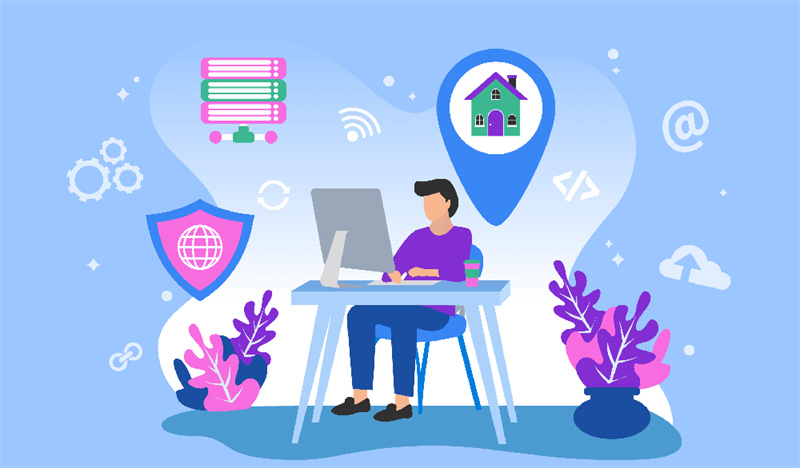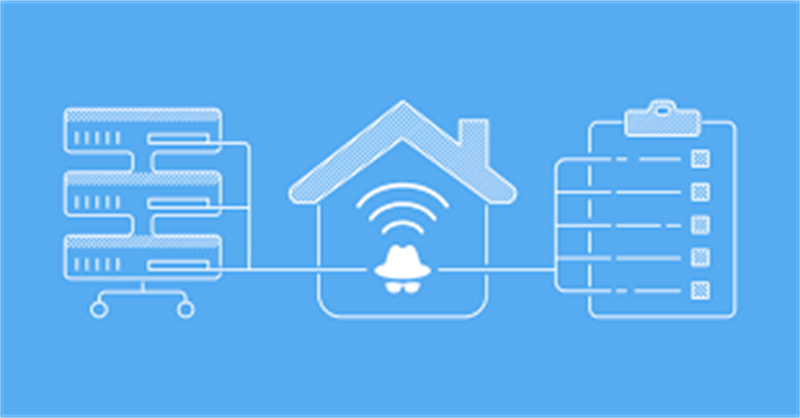Web scraping has become an essential technique for extracting data from websites. However, with the increased anti-scraping measures by websites, it has become harder to scrape data without getting blocked. Web scraping with residential proxies can provide significant advantages, including increased anonymity and bypassing of common obstacles like IP blocks.
In this article, we will discuss the benefits of using residential proxies for web scraping and how to avoid IP blocks and more!
Navigation of Contents
What are Residential Proxies?
A residential proxy is an IP address provided by an Internet Service Provider (ISP) to a homeowner. These proxies provide a way to access the internet anonymously by masking the user's original IP address with the proxy server's IP address.
Residential proxies are different from data center proxies as they are connected to real residential devices, making them appear as regular users of websites.
Have you ever tried using a residential proxy for web scraping, only to find yourself blocked after just 30-45 minutes? It can be frustrating, having to manually change your IP address to avoid getting blocked. But fear not, there's a better solution that can save you time and hassle: residential rotating proxies.
Understanding Rotating Residential Proxies
Imagine having a magic proxy that changes its appearance every time you use it, making you virtually invisible to websites. That's the power of a rotating residential proxy!
It's like having a disguise that keeps changing, allowing you to access websites for web scraping without getting caught or blocked. A rotating residential proxy is a type of residential proxy that automatically rotates or changes the IP address being used by the user at a set interval or after each request.
This is done to avoid detection by websites and prevent IP blocks. With a rotating residential proxy, the user can continuously scrape data from websites without getting blocked. The proxy provider manages the rotation of the IP addresses, making it easier for the user to focus on their web scraping tasks.
How does a Residential Proxy Work?
A residential proxy allows you to browse the web through an IP address associated with a genuine residential device, like a laptop or smartphone. This disguises your web scraping activities as regular internet usage, preventing websites from detecting bots or servers.
To use a residential proxy, your request is first received by the proxy server and then sent to the target website using the residential IP address. This makes the request appear as if it came from a real residential device. The website responds to the request by sending it back to the proxy server, which then forwards it to your computer or server.
Third-party companies provide residential proxies by renting out their large pool of residential IP addresses. Using a residential proxy helps you bypass website blocks and access data that would otherwise be out of reach.
Benefits of using Residential Proxies for Web Scraping
Increased Anonymity
Residential proxies allow web scrapers to remain anonymous by hiding their IP address. This makes it difficult for websites to detect the scraper and block their IP address.
Better Access
Residential proxies provide access to geo-restricted websites and data that are only available in specific regions. This is especially useful for businesses that require data from multiple countries.
High Success Rate
With residential proxies, web scrapers can avoid IP blocks and access websites without being detected. This increases the success rate of web scraping projects, making them more efficient.
How to Avoid IP Blocks when Using Residential Proxies
Limit Requests -> Websites can detect scraping activity by monitoring the number of requests sent to their servers. It is essential to limit the number of requests sent to a website to avoid triggering their anti-scraping measures.
Use Webshare Residential Proxy Provider -> This proxy server is designed to provide users with the fastest web scraping experience possible, it offers a wide range of proxy lists that support both HTTP and SOCKS5 endpoints, giving user the flexibility to choose the protocol that works best for their web scraping needs.
Use a proxy manager -> A proxy manager can automate the rotation and management of your residential proxies, making it easier to avoid IP blocks
Wrap Up
In conclusion, web scraping is an important technique for extracting data from websites. However, with the increase in anti-scraping measures by websites, it has become necessary to use residential proxies to avoid IP blocks.
Residential proxy provides increased anonymity, better access, and a higher success rate for web scraping projects. By limiting requests, using a proxy manager, and availing a Webshare residential proxy provider, web scrapers can avoid IP blocks and efficiently extract the data they need.
FAQs
Are residential proxies legal?
Yes, residential proxies are legal as they are provided by ISPs to homeowners. However, using them for illegal activities such as hacking, phishing, or spamming is illegal.
Why are residential IPs popular for web scraping?
Residential IPs are becoming increasingly popular for web scraping, as they allow individuals and businesses to simulate natural user behavior and effectively overcome common web scraping obstacles like IP blocking, CAPTCHAs, and geographical restrictions.
How much Webshare proxy cost?
Webshare provides a free plan that includes 10 proxies and 1GB of data per month, with no time limit. If you require additional bandwidth or proxies, or want to access premium features, there are various paid plans available at different rates, ranging from $18 for 1GB to $4,800 for 1,000GB of data. For more details about the pricing plans, please visit the {…} website
Is it possible to be traced while using a residential proxy?
While using a residential proxy can make it difficult to trace your online activities back to your real IP address, it is still possible to be traced by determined individuals or organizations with advanced tracking techniques.

